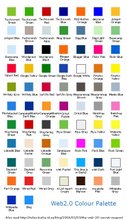In the 1990s we celebrated the free-reign of a cyberspace. With a freedom to create a ‘new’ persona that stayed online and traversed the technology only world. Today and in the era of Web 2.0 this approach has been replaced by the necessary replication of the ‘real’ person across various digital arenas; from SNSs, blogs, webpages amongst a whole host of other shared content. Now who we say we are has meaning and must reflect a true and trusted identity.
Trust, is an important issue. The latest from the Google giants is the launch of a freely contributed to (typically Google) Google Health platform. As the Dr health of data, with your Google account information about your personal health can be:
- Stored in one place; with notes from doctors, hospitals, and pharmacies
- Used to keep medical practitioners up to date with your health status
- Provide you with health information about healthy issues
And so we’ve reached a point of convergence: From focus on the material hardware of machines and technology to accentuation of software sorted content and information data. In view of this the repositories of information that Google, Facebook, YouTube etc hold, represent a new data materialism that means matter matters. The storage of personal data has become invisible, we choose to volunteer and to contribute snap-shots about ourselves that are stored, seen and processed by others. Consequently we are mostly unaware of what goes on in the ‘big black box’ of the web in terms of our data. The re-configuration of channels of identity information operate as an invisible system of secretiveness, silently running in the background.
Put simply; after Google we do not know what our information does, nor where it is.
But does any of this matter?
We select the types of data and information to share, and invest a level of trust to the sites and people to whom we give access. This means that we can’t just expect information to stay static, it moves and shifts as sites update and other users sift through data. The structures are self-concealing; put a new album on Flickr and where does it go?... And who is looking at it?
Perhaps we are better off unaware of the what and where our data goes and to have faith in the user-friendliness of our social software. Ultimately our data may not be strictly our own, but we have a measure of control with how we contribute and recreate ourselves across the web. And whether Google Health is the new Dr for our healthy needs.
Another version of this post was published at GirlGeekdom



